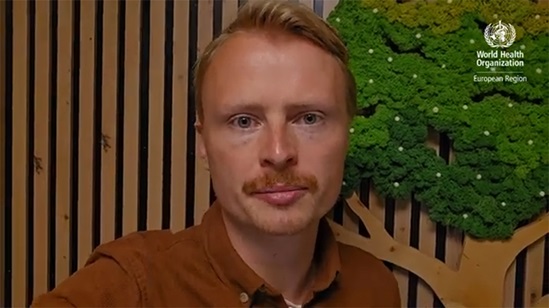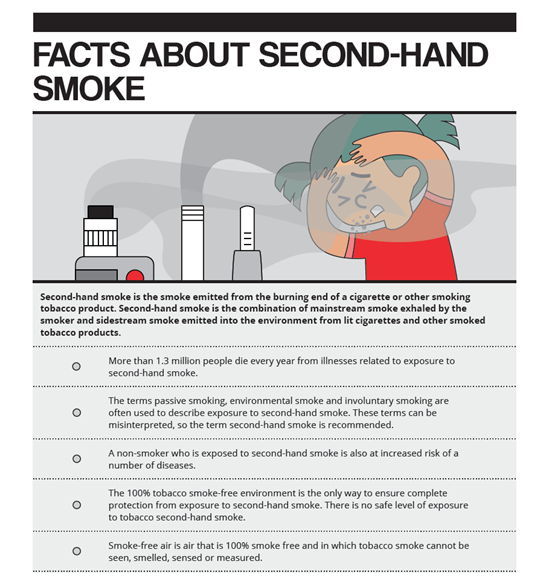The WHO Framework Convention on Tobacco Control (FCTC) has had a significant impact on national legislation, with 80 percent of ratifying countries having either strengthened their laws or adopted new tobacco control legislation. Accordingly, the global
implementation of the WHO FCTC has steadily increased over the years, and the average rate of implementation of the substantive provisions of the Convention stood at almost 55 percent in 2014. There has also been political recognition of the role
of the WHO FCTC in achieving progress in key areas such as: the global action plan against noncommunicable diseases; addressing social determinants of health; and strengthening the links between the development agenda and health. This has been manifested
in several high-level resolutions and declarations, including at UN level.
However, the WHO FCTC and its Guidelines are not yet being used to their full potential. While some European countries have established themselves as global tobacco control leaders, there is still much work to be done to ensure that the Convention is
fully implemented across the Region.
Compared to the rest of the world, the WHO European Region:
- has the highest average cigarette prices and the highest average tax rate in the price of cigarettes;
- has the highest level of full protection from tobacco smoke in indoor workplaces;
- has the second highest share of Parties that have introduced a comprehensive ban on advertising, promotion and sponsorship;
- has the majority of Parties with well-established programmes in the treatment of tobacco dependence and cessation;
- has the lowest rates for implementation of large warnings (more than 50% of main surface of packages) and also has the lowest share of Parties requiring pictorial warnings; and
- falls behind most other parts of the world in ban on point of sale and international media advertising.
WHO/Europe works closely with national governments and civil society to facilitate the implementation of the WHO FCTC. It organizes consultative meetings, workshops, as well as day-to-day support to review and update national legislation and strengthening
national capacity.
Addressing remaining challenges through targeted policies
The European Region still faces many challenges in the area of tobacco control. One key barrier to a tobacco-free Europe is illicit trade in tobacco products, which has been addressed in the Protocol to Eliminate Illicit Trade in Tobacco Products, adopted
in 2012.
Illicit trade makes tobacco products more affordable and accessible to low-income groups and children, in turn increasing health inequalities within society. It also undermines the effectiveness of tobacco control policies and results in less revenue
for governments, cheaper prices for smokers and, therefore, increased tobacco use. Eliminating or reducing the illicit cigarette trade will reduce consumption (by increasing price), save lives and increase revenue. A coordinated set of interventions
is necessary to reduce illicit trade, including: international collaboration; strengthened tax administration; increased enforcement; and swift, severe penalties.
It is of the highest priority that all governments in the European Region ratify the Protocol to Eliminate the Illicit Trade of Tobacco Products as an important means of reducing tobacco-related deaths and illness, as well as increasing revenue. In total,
40 ratifications globally are needed for the Protocol to enter into force. As of 2015, 10 countries had ratified it.












